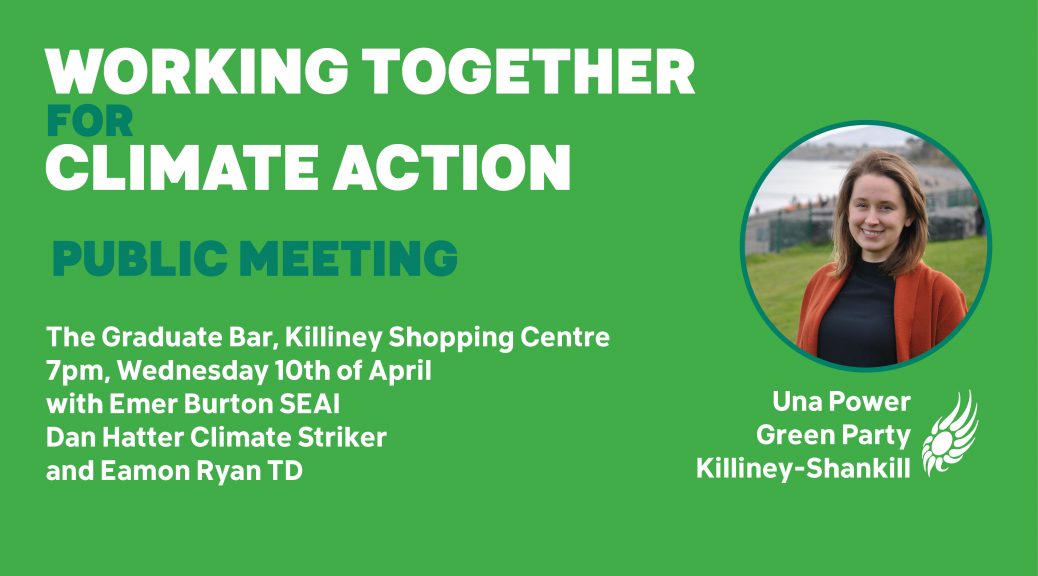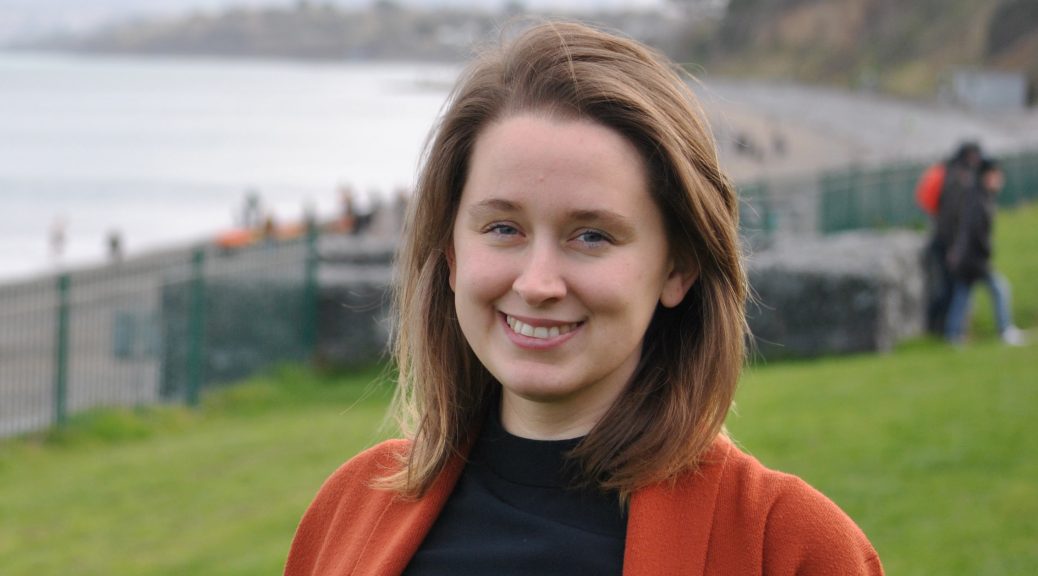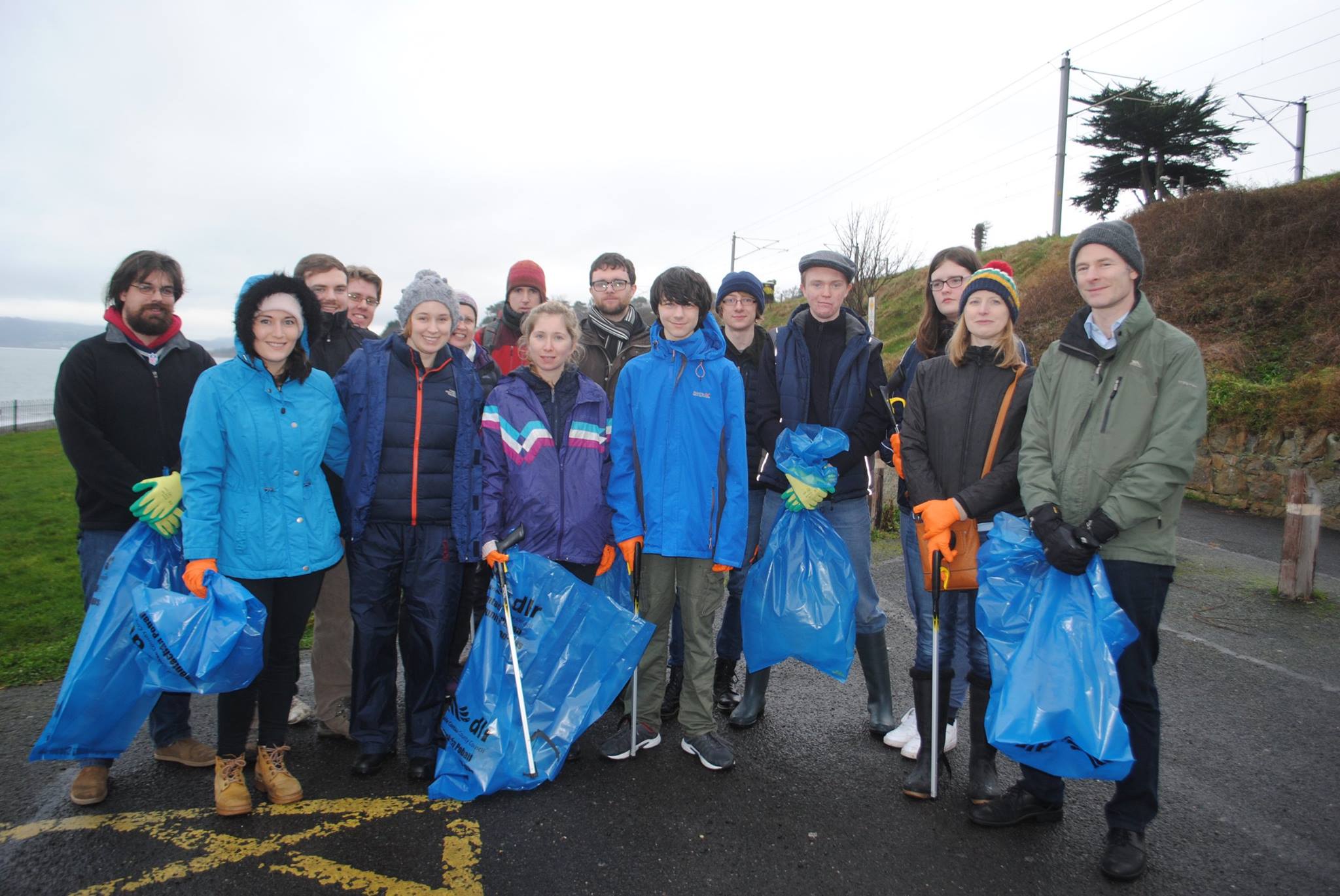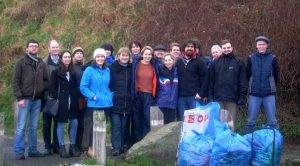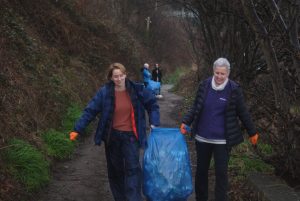
Leo’s Silver Linings Playbook is a bad read
Varadkar’s bright side of life comments undermine the dark side of climate change
“One thing that we definitely face as a result of climate change is warmer winters. We’re already experiencing warmer winters, and that actually means using less energy because it’s warmer and people need less heating, and it also means fewer deaths as a result of cold weather.”
Who said this?
- The CEO of Exxon selling the company as a green hero
- An anonymous twitter account with a hashtag heavy bio
- The Taoiseach at the launch of his government’s first progress report on their Climate Action Plan
If you answered c) then you would, sadly, be correct. In today’s Sunday Business Post Aiden Corkery reported how Leo Varadkar had said there were “pluses and minuses” when it comes to climate change. With climate action like this who needs oil lobbyists?
Varadkar’s comments once again highlight the superficial approach of his administration to climate action. There is a dearth of understanding when it comes to the nuances and complexities relating to climate change. Issues are addressed in silos and the knock on implications are never considered. This is a result of a desperate need to look green and try and grab accompanying votes, rather than actually engage in any serious action – action that demands complex and interwoven solutions.
Anthropocentric approach
Varadkar’s comments are indicative of an administration who see humanity as separate to the natural world around it. The human ability to preserve and import food from across the world has, to a certain extent, alienated us from seasonal dependencies.
But for the flora and fauna with whom we share this planet, the impact of climate changes can wreak havoc on their food supplies and long term sustainability.
While some butterflies have thrived with the arrival of warmer seasons, others – such as the rare High Brown Fritillary in Britain – are struggling to survive. Many butterflies have advanced their phenology – that is their lifecycle – by 3 days to a week over the last twenty years to match increasing temperatures. Multi-generation butterflies – those who breed multiple times over a year – have seen success with this adaption, benefitting from extended breeding seasons. However, butterflies like the High Brown Fritillary, which has a specific dietary needs and is single generation, have struggled as a result of advancing their phenology with their caterpillars emerging out of sync with their food sources.
Migratory birds, for which Ireland is an incredibly important location, are also suffering and having to adapt quickly due to climate changes. Decreasing wetlands and disappearing food sources are already a problem for our winter visitors. Birds changing their migratory patterns in tandem with temperature changes can also cause ecological asynchronism. Like butterflies, not all birds can simply substitute their food sources and a lack of access to these sources due to climate change, as well as non-climate change related habitat destruction, can cause huge problems.
I know. I’m the Green Party rep going on about butterflies and birds and bees – how quaint. But at at the end of the day, we aren’t as separate to the natural world around us as some would have you believe. When changing weather patterns impact on pollinators and their food chains, we all suffer the knock-on impacts – on farming, on food production, and on the economy. Our farming systems are reliant on the natural world around us – and when our butterflies and birds and bees are suffering, it’s an alarm bell for a larger problem.
An anthropocentric approach to climate change might actually be the most misanthropic thing we could do.
What makes Ireland warm, makes other places unliveable
No man is an island.
While Ireland is a literal island, it’s high time we start to think of ourselves as part of a wider world and the implications of climate change for everyone with whom we share this planet.
A warmer winter in Ireland will mean deaths elsewhere. Already we are seeing other parts of the world suffering due to climate change, with rising sea levels endangering coastal areas, extreme sea level events increasing, and rising temperatures making countries too hot to live in. And speaking of islands, the IPCC in its September report has warned that some island nations will likely become uninhabitable due to “climate-related ocean and cryosphere change”.
When a winter gets warmer for the island of Ireland, the seas become more dangerous for the people of the Torres Strait Islands.
“We’re currently seeing the effects of climate change on our islands daily, with rising seas, tidal surges, coastal erosion and inundation of our communities,” were the words of Kabay Tamu, one of the islanders who took lodged a complaint to the United Nations over Australia’s failure to reduce emissions or pursue adequate adaptation measures.
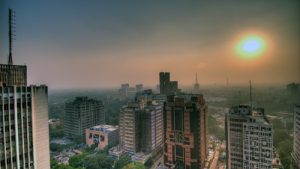
The effects of climate change are harming people worldwide. According to the IPCC, even if we keep global warming to 1.5°C, “twice as many megacities as present (such as Lagos, Nigeria, and Shanghai, China) are likely to become heat stressed, potentially exposing more than 350 million more people to deadly heat stress by 2050. At +2°C warming, Karachi (Pakistan) and Kolkata (India) could expect annual conditions equivalent to their deadly 2015 heatwaves.” So a warmer winter here will mean more deaths internationally.
What’s a warm winter?
Here’s the thing, warmer doesn’t mean just warmer. It isn’t a benign thing meaning that we can turn simply keep the heating turned off a little longer.
Warmer means windier.
Warmer means rainier.
Warmer means stormier.
Warmer means that Ireland will experience more extreme weather events. It means that we could see hurricanes land on our shores. It means our homes are at risk of greater flooding. It means our buildings and natural heritage will be damaged by increased winds.
That saving you might get on your home heating will be lost to flood and storm damage.
Climate change is serious even if this government isn’t
The Taoiseach’s comments are shameful. This glib approach to climate change is worrying and is unworthy of any politician proclaiming to invest in climate action. The dangers of climate change, particularly change that is happening so rapidly, are terrifying and shouldn’t be undermined by such petty remarks.
We need leaders who understand and acknowledge the complexities of climate change. We need leaders who realise Ireland’s role in a global context. We need leaders who act and act swiftly.
We don’t need silly statements.
Further reading:
https://climate.nasa.gov/news/2878/a-degree-of-concern-why-global-temperatures-matter/
https://www.ipcc.ch/site/assets/uploads/sites/2/2019/03/SR15_SOD_Chapter3.pdf
https://www.theguardian.com/australia-news/2019/may/13/torres-strait-islanders-take-climate-change-complaint-to-the-united-nations
https://www.sciencedaily.com/releases/2019/10/191024075001.htm
https://www.irishtimes.com/news/environment/decline-in-numbers-of-wintering-waterbirds-continues-apace-1.3994188
http://theconversation.com/climate-change-is-forcing-butterflies-and-moths-to-adapt-but-some-species-cant-125829
